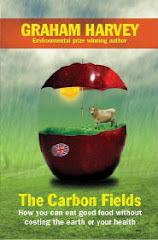It seems the company’s buyers are busy looking for local product ranges to help satisfy a market sector that could be worth £1bn in three years time. Since launching local sourcing a year ago, Tesco has, it seems, discovered more than 1000 new product lines.
The company’s head of local sourcing is quoted as saying: “More customers want great local food that is fresh and contributes to the local economy.” How heartening to know that our biggest supermarket chain is so committed to supporting the local community.
The last time I shopped in my local Tesco I was offered a money-off petrol voucher at the check-out. It entitled me to 5p off every litre I bought in the store’s adjoining filling station.
The only explanation I could come up with for this blatant piece of cross-subsidising was that it was an attempt to wipe out the local opposition. There’s only one other petrol retailer in our small west
This seems rather at odds with Tesco’s apparent concern for the local economy. Could it be that the real reason for the new local food initiative is to knock out farmers’ markets and farm shops?
Thanks, Tesco, but I shall go on buying my local food at my neighbourhood farmers market, just as I buy my petrol from the local Esso station. In fact, I have a suggestion to make. Why don’t the independent petrol retailers start selling local food? That way we may start to see some real support for local economies.





